
It is an unusual Easter in Guanacaste and the rest of the world. Although unusual it is a word that does not do justice to the situation. A few days ago I heard an expert say that a “sense of unreality” is what causes many people not to take the measures recommended by different governments during the pandemic. I don’t blame them, that feeling of unreality accompanies me every day and today she’s sitting in the back seat of the car.
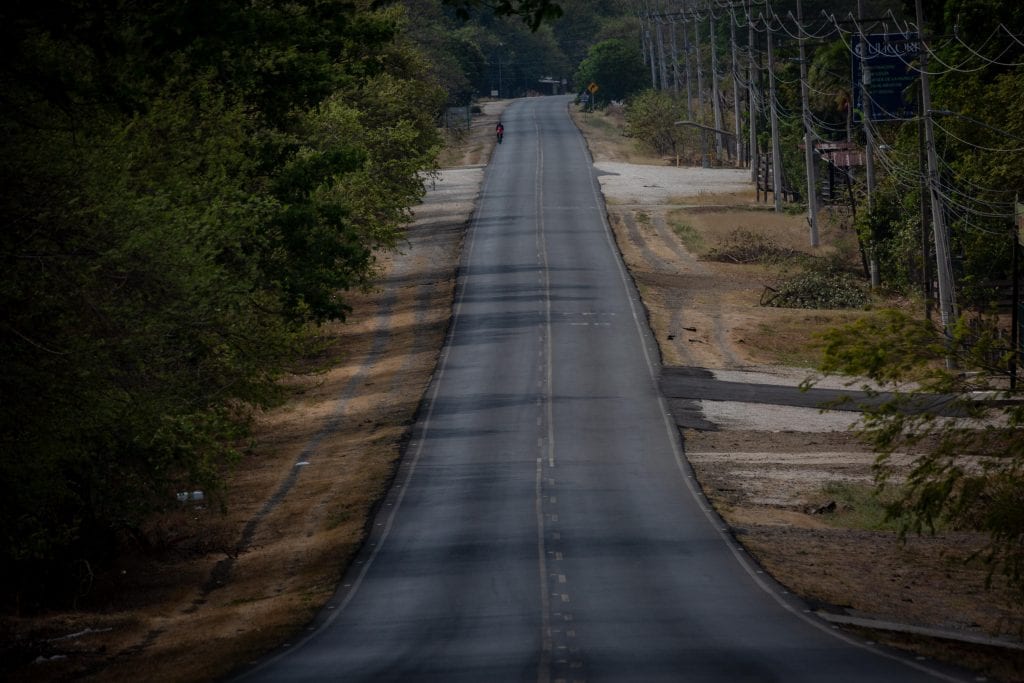
National Route 21 between Nicoya and Santa Cruz is widely used to go to the beaches of the province, but this Easter is deserted.Photo: César Arroyo
The idea of a group of neighbors shutting down a street to prevent “the infected” from arriving seemed only possible in the post-apocalyptic series or movies that I play when I’m bored. I never thought it would happen in Paquera.
After passing through two police checkpoints, to which we showed proof that we were journalists, we managed to reach our first stop: Daniel Oduber Airport.
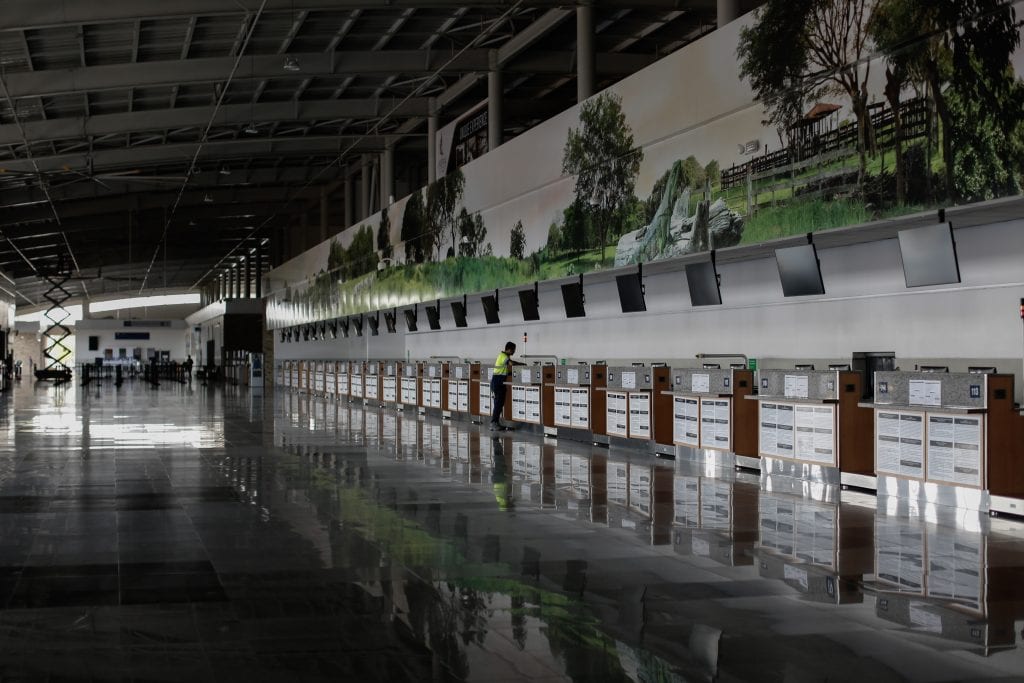
A Daniel Oduber airport worker walks in front of the empty counters. The government of Costa Rica signed a state of emergency decree that restricts the entry of foreigners to the country in order to prevent a massive spread of the coronavirus (Covid -19). Photo: Mari ArangoPhoto: Mari Arango
We get a short tour of the airport almost in the dark, with empty counters, off screens and a few unoccupied immigration officers, looking at their cell phone screens. The only thing that breaks the thick silence that runs through all the boarding halls is the whistle of a crane moving through the terminal.
Daniel Oduber keeps a minimal part of his staff working since the President of Costa Rica, Carlos Alvarado, signed a State of Emergency decree that restricts the entry of foreigners to the country in order to prevent a massive spread of the Coronavirus (Covid -19).
The next point on the map is the city of Liberia. We make a brief tour of the hot and silent streets. The #Stayhome seems to start working by repetition in the “white city”. In front of the closed church with chain and lock, few people come and go on foot or by bike, with bags full of groceries. It seems that the days were, one after the other, the most melancholy Sunday of the year.
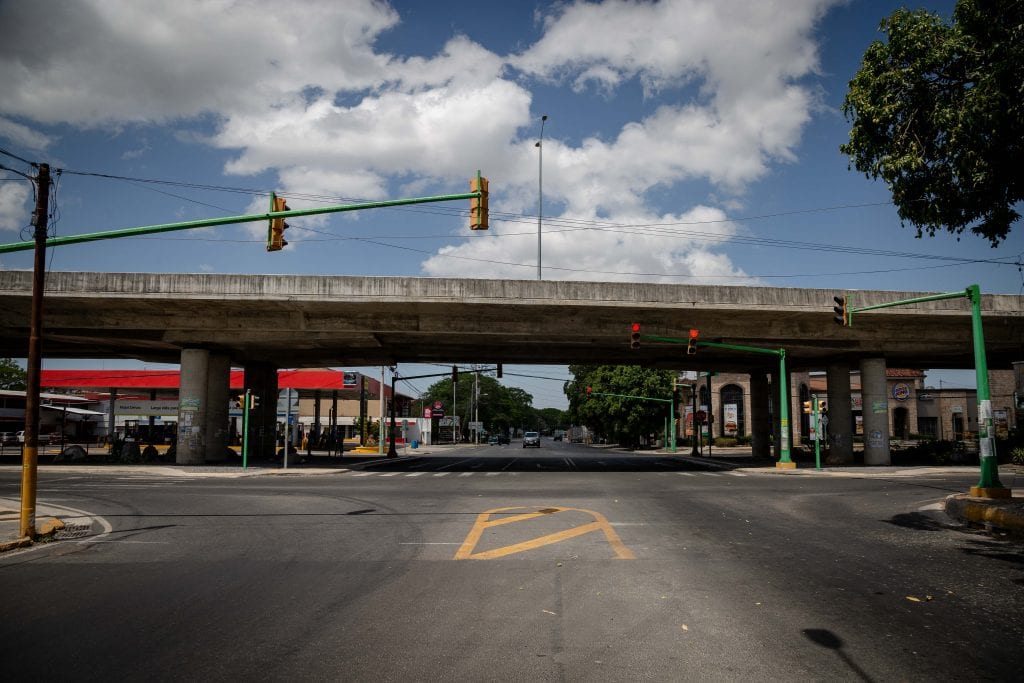
Crossing the entrance to the city of Liberia is usually a headache for drivers, but this week looks empty. On Wednesday, April 1, Republic President Carlos Alvarado announced that the vehicular restriction measures would be strengthened during Easter. Photo: César ArroyoPhoto: César Arroyo
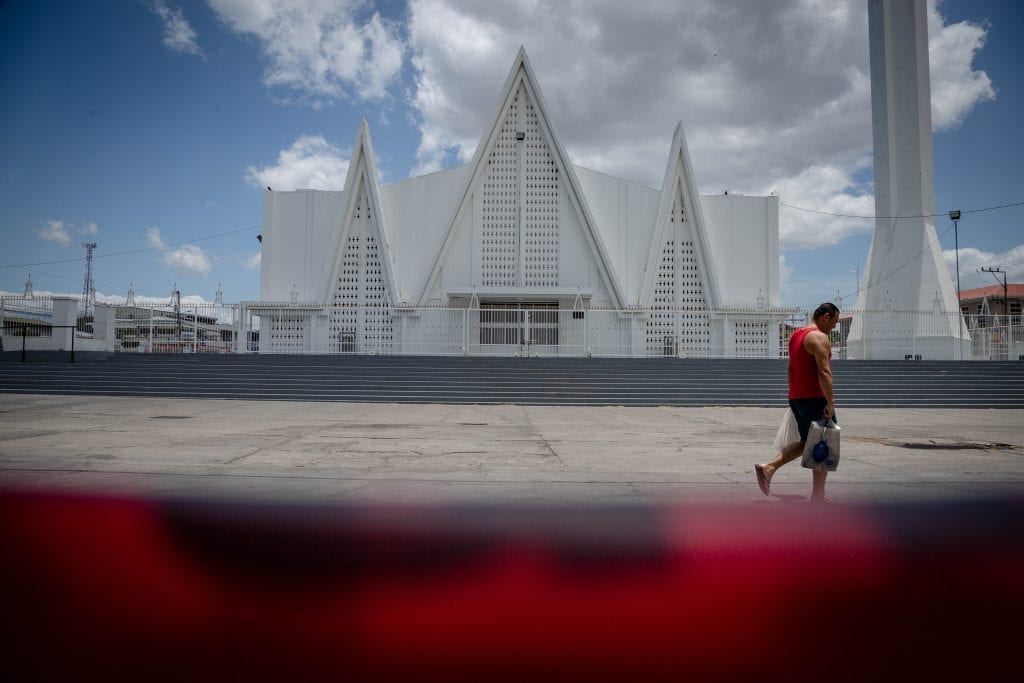
In Liberia a man crosses with some shopping in front of the church, which decided to cancel its Easter activities because of the pandemic. This week, supermarkets, suppliers, grocery stores and health services and pharmacies are the only establishments that have permission to open without time restrictions. Photo: César ArroyoPhoto: César Arroyo
Without much further observation, we set off for the coast to witness the holidays that were not there. Clear travel is interrupted only by police checkpoints.
The closer we get to Samara Beach, the grayer the day gets. By the time we arrive, the sun is clouded by a cloud that makes the panoramic view of lonely waves and dull hotels more dramatic.
At the bottom of the beach three men fish with water by the waist, at the other end boats float without people, and a little closer, four people ignore the yellow ribbons plunging headfirst into the white waves of the shore.
If the police found them, they may require them to leave, but perhaps they know that the number of police dedicated to controlling the bans is not enough to find them all. I would not believe if a few months ago I was told that bathing in the waves of Samara would be illegal.
In the background, a gigantic orange sun emerges from the clouds just to slip quickly through the mountains. The sense of unreality seems to have come to stay and some people call it “the new normal”.
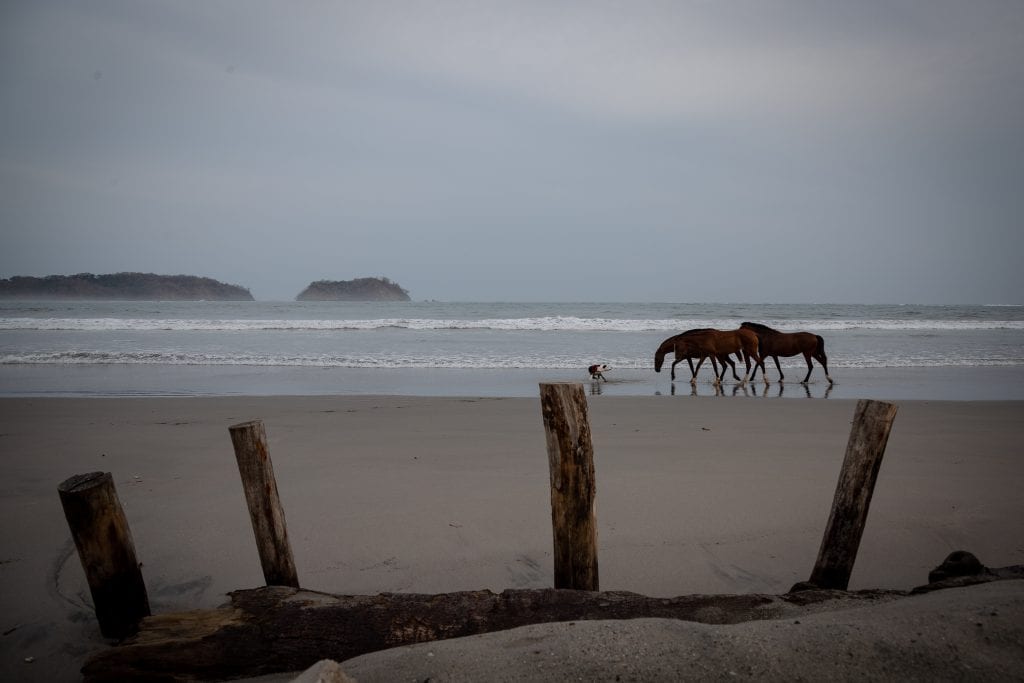
A group of horses walks free on the lonely beach of Samara in the canton of Nicoya. This beach was closed until further notice by the Municipality and the Public Forces since March 20. Photo: César ArroyoPhoto: César Arroyo
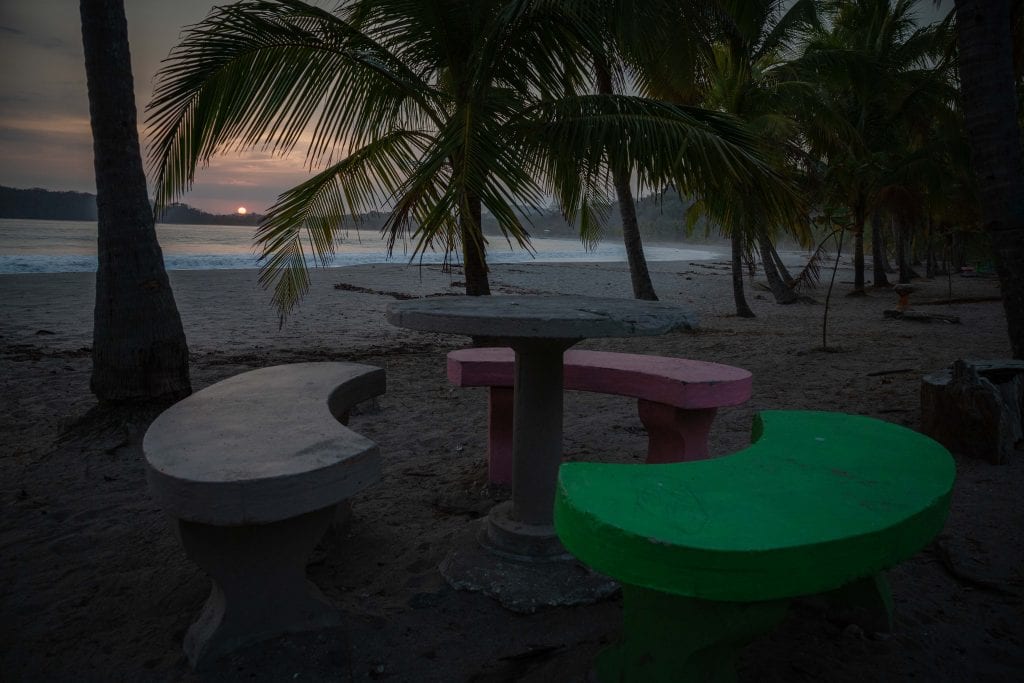
The sun sets in front of a Puerto Carrillo without vacationers. The Costa Rican Tourism Institute (ICT) estimates that hotels in Guanacaste will not receive money possibly until June or July this year. Photo: César ArroyoPhoto: César Arroyo
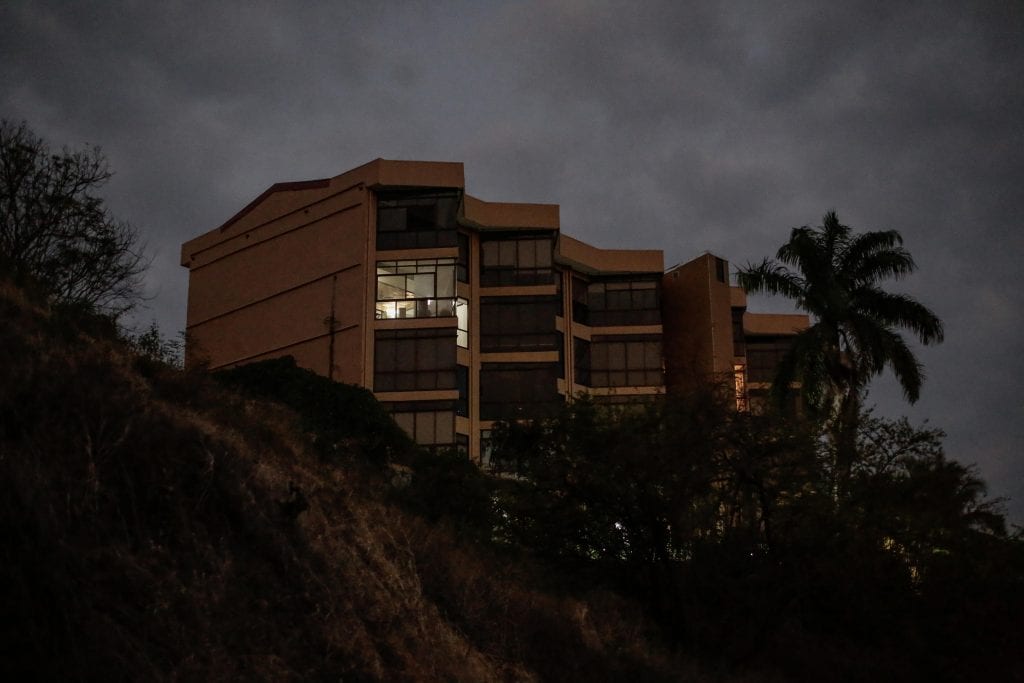
Only one room is illuminated in a holiday rental building in Samara. Hoteliers in Guanacaste have appropriated the term “zero season” to describe the current situation of the province: zero clients, zero income and zero profits due to the crisis of the Covid-19 virus. Photo: César ArroyoPhoto: César Arroyo


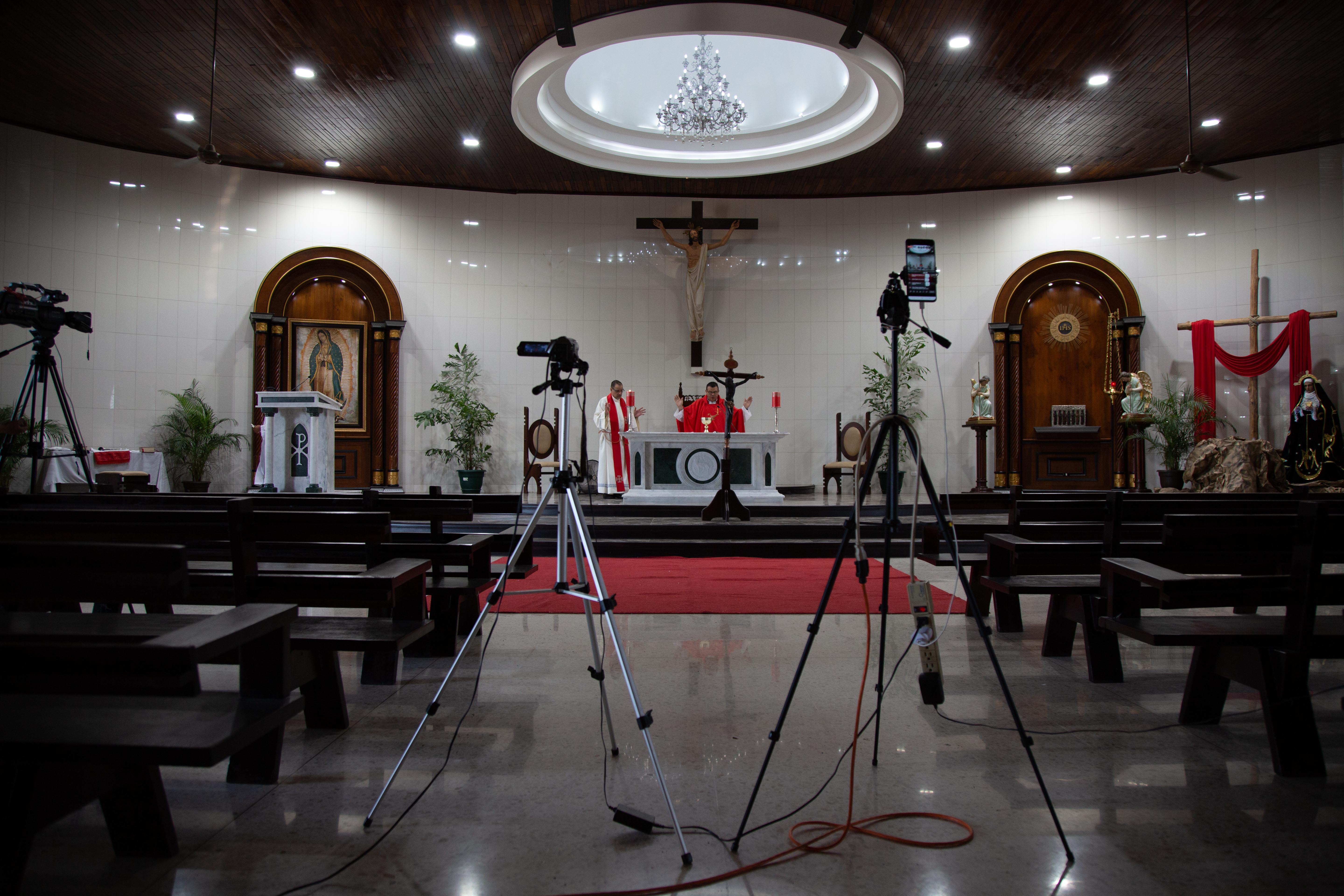

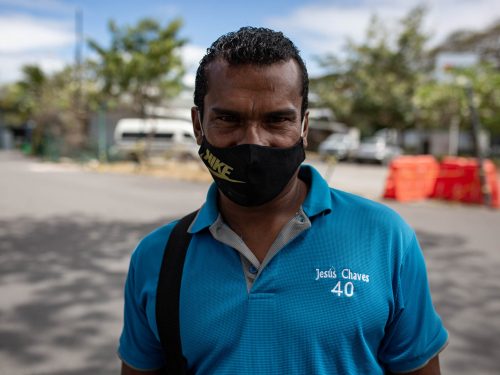
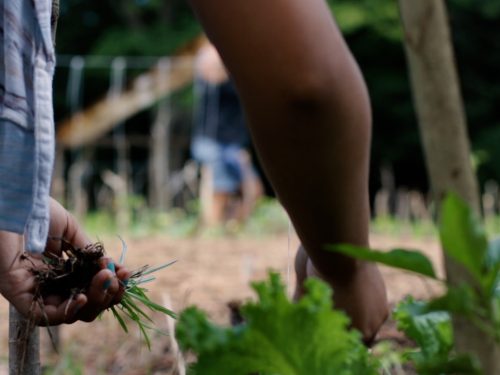

Comments